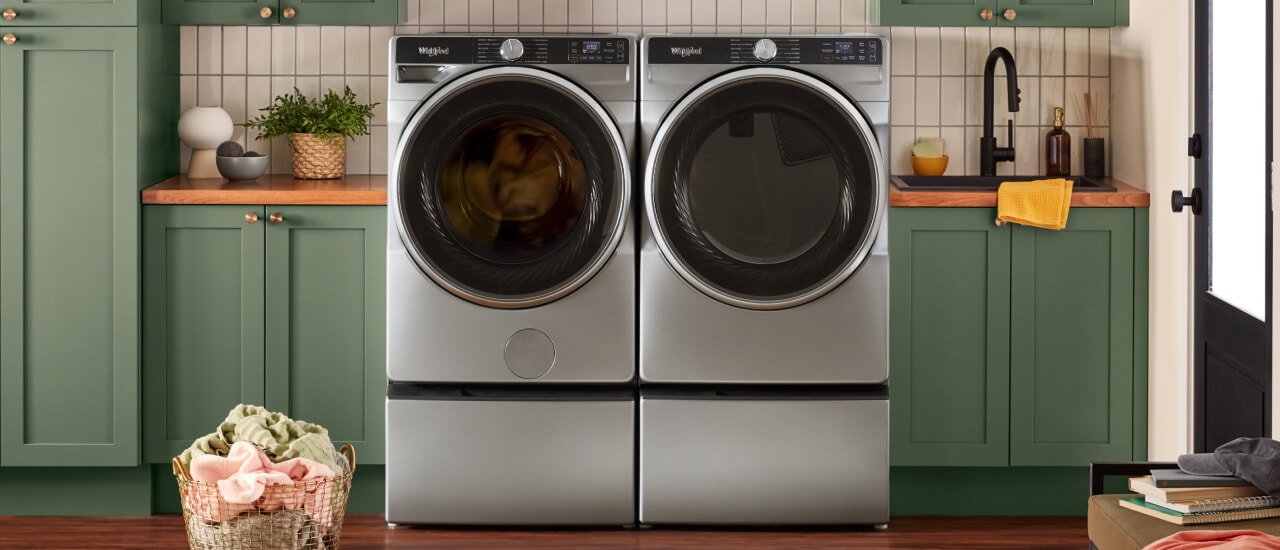
Powder vs. liquid laundry detergent: Which is better?
When choosing between liquid detergent, powdered detergent and single dose pods, a few factors come into play. These include the type of stains you need to tackle, as well as the condition of the water in your home. This guide will help you explore your options so you can decide which is best for your family.
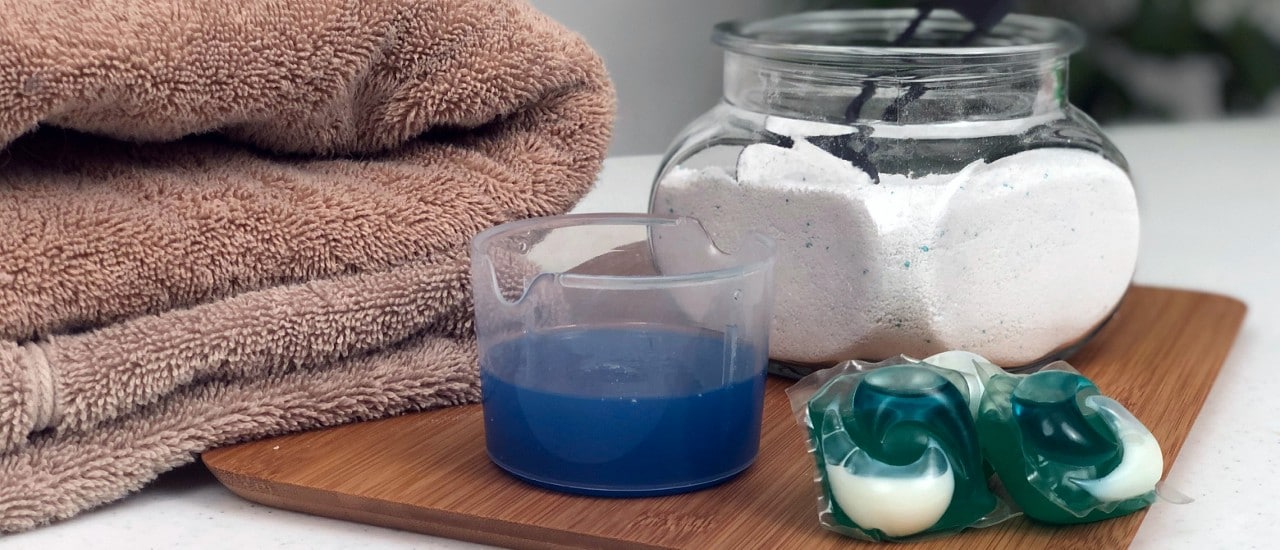

Which type of laundry detergent is the best for you: Powder, liquid or single dose pods?
Though they all have individual benefits, there are pros and cons to each detergent type depending on your load size, water type and most common stains. If you’re washing shoes in your machine, you’ll want liquid detergent such as using laundry pods to prevent the powder from getting stuck in the shoes. Make sure to always follow the manufacturer’s instructions for detergent usage.
Explore the charts below to help you find the right detergent type to suit each laundry load:
Powder
Pros
- Best for mud or clay stains
- Lowest cost per load
Cons
- Often doesn’t dissolve as well in cold water
- Can leave residue on laundry or washer
Liquid
Pros
- Better for greasy or oily stains
- Convenient for pre-treating
- Dissolves easily in any water temperature
Cons
- Easy to under or overdose
- Packaging isn’t eco-friendly
Single dose pods
Pros
- Easy to use
- Premeasured to prevent oversudsing
- Minimal packaging
Cons
- Priciest option per load
- Can be a hazard for small children
Cleaning tip: Make sure to use only high-efficiency (HE) detergents in high-efficiency washing machines. Using non-HE detergent can cause oversudsing and result in longer cycle times. Learn more about why it’s important to use HE detergent in your high-efficiency washing machine.
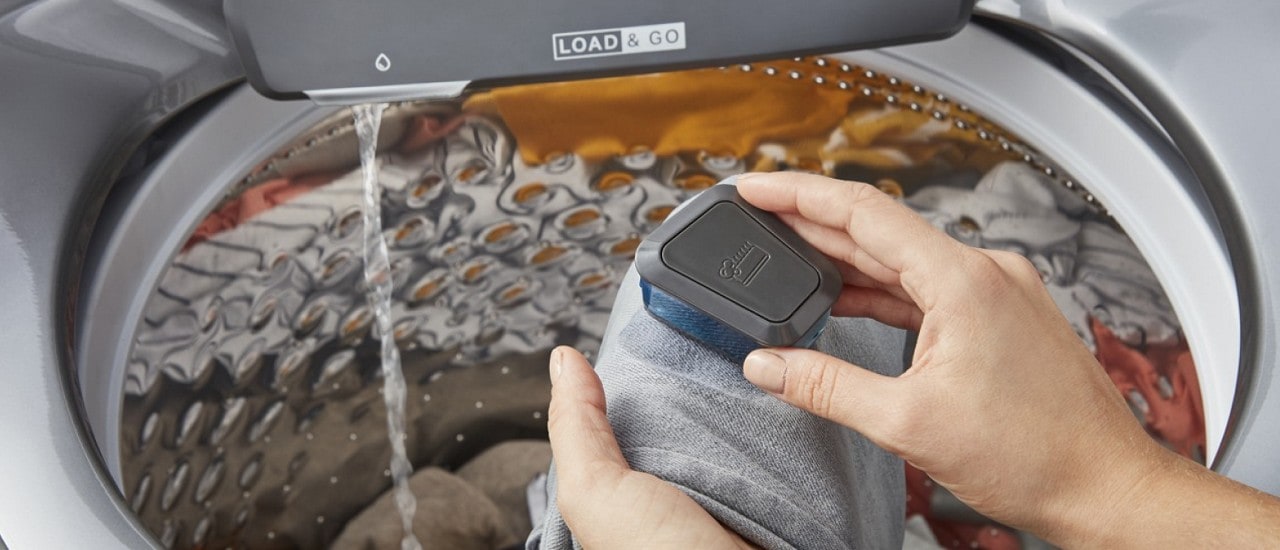

Powder vs. liquid laundry detergent: What’s better for stains?
Both powder and liquid laundry detergents offer stain-fighting benefits, but their effectiveness may depend on the type of stain. Powerful cleaning agents that can be included in powdered detergent formulas, but not liquid forms, work to help remove mud, grass or clay stains. Liquid detergent is best used for grease or oil stains on your day to day items, because of its ability to help release and break down stains in fabrics.
What’s more budget conscious: Powder or liquid detergent?
When calculating the cost per load, powder detergent is generally the more economical option in comparison to other types of detergent. Its lighter weight makes it less expensive to transport and often easier to manufacture in comparison to liquid detergent, making it cheaper for you to purchase.
Is liquid or powder detergent better for your washing machine?
Because liquid detergent uses water as the main filler ingredient, it dissolves easily regardless of water temperature. This leads to less likelihood of buildup on your washer or clothes. Just make sure to use proper dosing to help avoid oversudsing, residue or bad smells from forming. Powdered detergents can also leave behind residue if they don’t dissolve properly. This can cause white stains on your clothes or a buildup in your washing machine’s drain, especially when used with cold or hard water. Using an extra rinse option, if available on your model, can help ensure that the load is thoroughly rinsed.
Learn how to remove detergent stains from your clothes should they occur and how to routinely clean your washing machine to help avoid detergent buildup.
Cleaning tip: When loading your washer, always allow enough space for items to move freely. Clothing that is tightly packed in the washer may trap detergent and not allow it to completely dissolve. Starting with bulky items first, load your laundry in loose, untangled clumps so that it is evenly distributed around the agitator, impeller or drum. You should also avoid packing down clothes, as this will hinder the movement needed for a proper clean.
Feature shown: Load & Go™ Dispenser
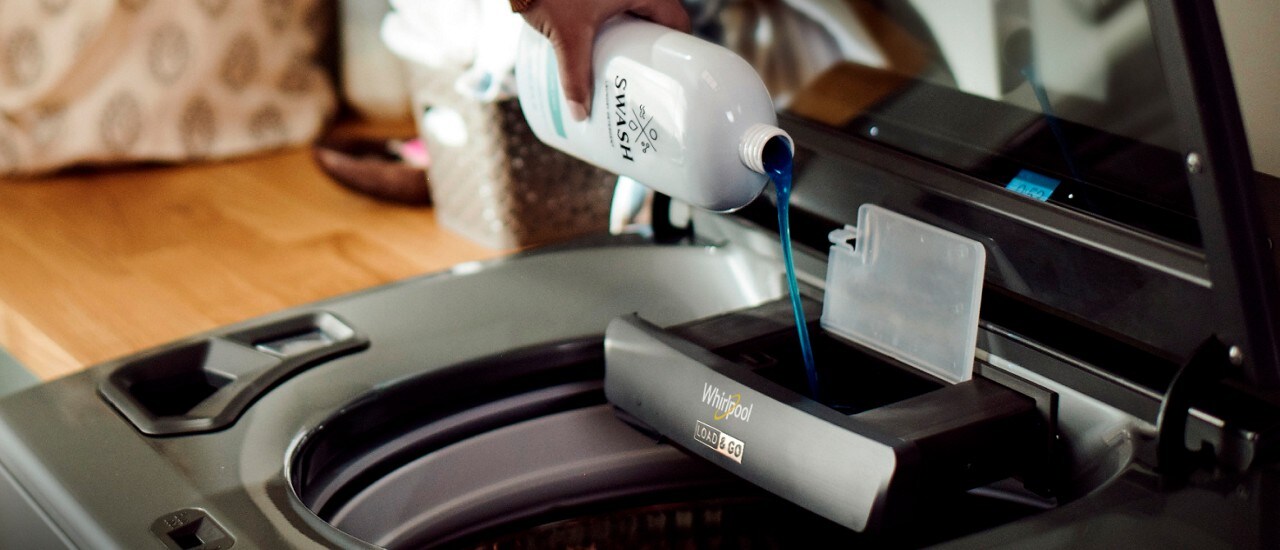

Which is better for measuring the right amount: Powder or liquid detergent?
Liquid detergent can be easy to over or underdose because of an overzealous pour or a difficult to read measuring cap, but is an easy to dispense option due to the convenient packaging. Powder detergent is simple to measure out, but may be difficult to deposit into your washer without spilling. Either option can be dosed correctly by being precise when measuring and dispensing detergent into your washing machine.
To avoid issues with buildup, oversudsing or residue in your washer, always measure detergent and follow manufacturer’s directions based on load size and soil level. If you have very soft water or a very lightly soiled load, you may need to use less detergent. If too much detergent is used, it will be difficult to fully rinse it away. To help avoid issues like over pouring, wasted detergent or residue, consider a detergent like Swash. Swash™ Laundry Detergent is designed with a pre-measured pour dosage cap to give you only what you need to clean and care for your belongings - no more, no less.
Cut measuring liquid detergent out of your daily laundry routine with Whirlpool® Washers featuring the Load & Go™ Dispenser. Designed for use with liquid detergent, not powder detergent, simply add liquid detergent once and get the right amount dispensed for 20-40 loads.1
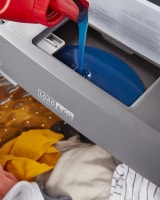

Is powder or liquid laundry detergent better for your septic system?
The filler ingredients in some powder detergents may not entirely dissolve in the wash, which could create blockages in your septic system or clogs in the drain hose that can interfere with your washer’s ability to fully drain. Liquid detergent is less likely to cause septic issues as long as you are dosing as recommended per the product packaging. If you do choose to use powder detergent, be sure to check the label to see if it is septic safe.
Is powder or liquid laundry detergent better for hard water?
Liquid detergent works better for getting a more thorough clean in untreated hard water. Its ingredients aren’t as reactive with the minerals most commonly present in hard water, therefore making it more resistant to its effects. You can still use powder detergent with hard water, but it will likely require the use of more detergent to get a proper clean. Always follow the detergent manufacturer’s recommendations on the product package.
Learn more about laundry detergent sheets.
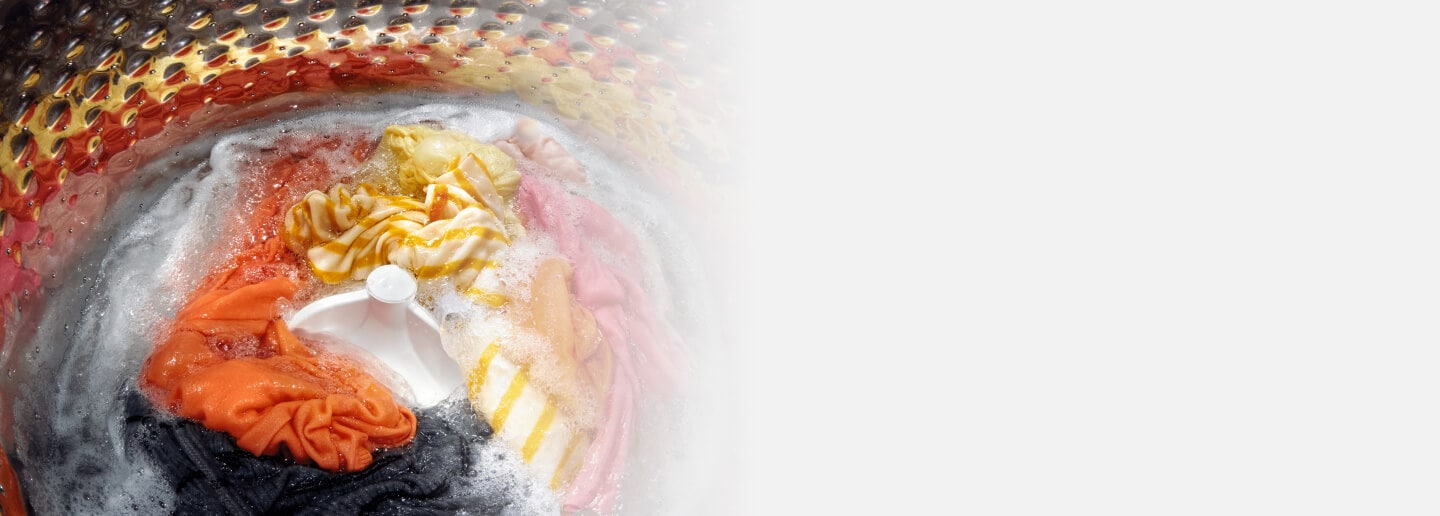
360 Wash Agitator
Multiple wash motions for a deeper clean you can see
From home-run mud stains to early-morning coffee spills, Whirlpool® Washers with 360 Wash Agitator loosen soils with a shorter wash time
Shop Whirlpool® washing machines
Getting the clean you expect out of every laundry day is easy when you rely on a washer by Whirlpool brand. Ensure proper care of your family’s clothes by browsing the full collection of Whirlpool® washing machines.
Was this article helpful? Pass it on


Helping kids stay in school
Learn how Whirlpool helps end the dropout cycle by giving kids access to clean clothes through the Care Counts™ Laundry Program
Explore more with Whirlpool brand


home heartbeat
Ready for more tips, home hacks and appliance guides?
1. Based on an 8-lb load. Actual dispenser capacity varies by model.

